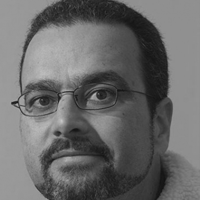Interest | Flávio Azevedo
"If we understand interests to be just about the domain and the topic and miss everything else that goes with it, then we won’t be able to design opportunities for learners really develop their science interests."

2018 Interview Highlights:
How do you define “interest”?
Like everybody else in this field, I distinguish between short- and long-term interests, and I think that it is important to understand both in order to understand learning and how to promote interests in classrooms and outside of classrooms. I think that there’s an important difference between the way I conceptualize interest and how it appears in the literature. My conceptualization of interest is broader than that, it’s a set of inter-related activities, and I think that’s a crucial difference. For example, when you start pursuing a hobby like model rocketry, you have a tendency to say, “I’m interested in model rocketry.” But, it turns out that, empirically, immediately a lot of other parts of your life become entangled with your practice of model rocketry. So this is what I call the multi-dimensional structure of interests. In other words, the motivational structure of interests is multi-dimensional. Interest is really a pattern of long-term pursuit and there are many reasons for why you’re pursuing it.
How can evaluators or practitioners measure or assess interest, in a practical way, to improve their work?
That is an area that I would like to learn more about. In my work, I don’t really need to assess interest. I study processes of interest triggering, interest development, and long-term pursuit. In these situations, I take, for instance, a hobbyist, an amateur astronomer, who has been practicing amateur astronomy for several years, and then I follow this person in an ethnographic form over several years. The only thing I “measure” is how the person’s participation in the hobby changes over time. I videotape the interactions, and I follow people all over the place, wherever they go to practice these things. I watch these videos over and over, and I try to make links between how certain specific aspects of each of these contexts shape what and how people pursue their interests in each of these spaces. That’s the extent to which I measure things. But, I admit, measuring interest is an area that I’m interested in learning more about.
How do you think about identity, motivation, and other concepts that are closely related to interest? Are they the same thing in your mind?
I don’t think they are the same thing at all. They go together, but they are not the same. In my view, people participate over the long term in interest-based activities because they can engage all of these “concepts” at the same time. So, I might pursue a hobby because I’m a certain kind of a person, because I identify with this practice in particular ways, and because I have various preferences that intersect with it. So, identity, interest, and motivation go together in synergistic ways and combine to make a person pursue a practice long term. But an interest is not the same as a person’s identity or motivation.
How does your approach to interests relate to longer-term engagement in science over the course of years, either in the STEM pipeline or outside of school in a hobbyist context?
Some of my subjects who were interested in model rocketry actually had experiences where they could demonstrate some of their knowledge of model rocketry and their understanding of physics in the classroom, based on what they had done in the hobby. The challenge for us is to find a way to cultivate those kinds of continuities over time, so as to support a people's multiple, multi-faceted preferences so that they can exercise their interests across many different spaces: in museums, in afterschool programs, in the classroom. Then they can develop their preferences and try them out over the long haul and in different spaces where they encounter STEM content.
Should we try to get STEM interest to be more closely associated with practices like model rocketry, to get kids interested in science?
I think that that is too broad a lens. I don’t think that really captures the nuance or the texture of people’s interests. I would say, sure, some people get interested in these particular domains and topics, and we should provide them the opportunities to get involved. Yet if we understand the interests to be just about the domain and the topic and miss everything else that goes with it, then we won’t be able to design opportunities for people to really develop their science interests.